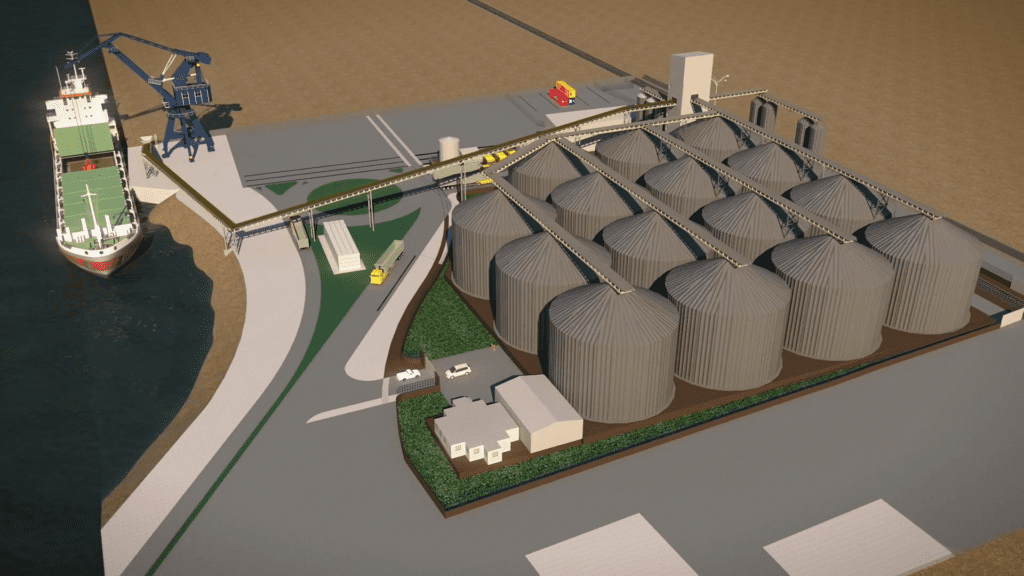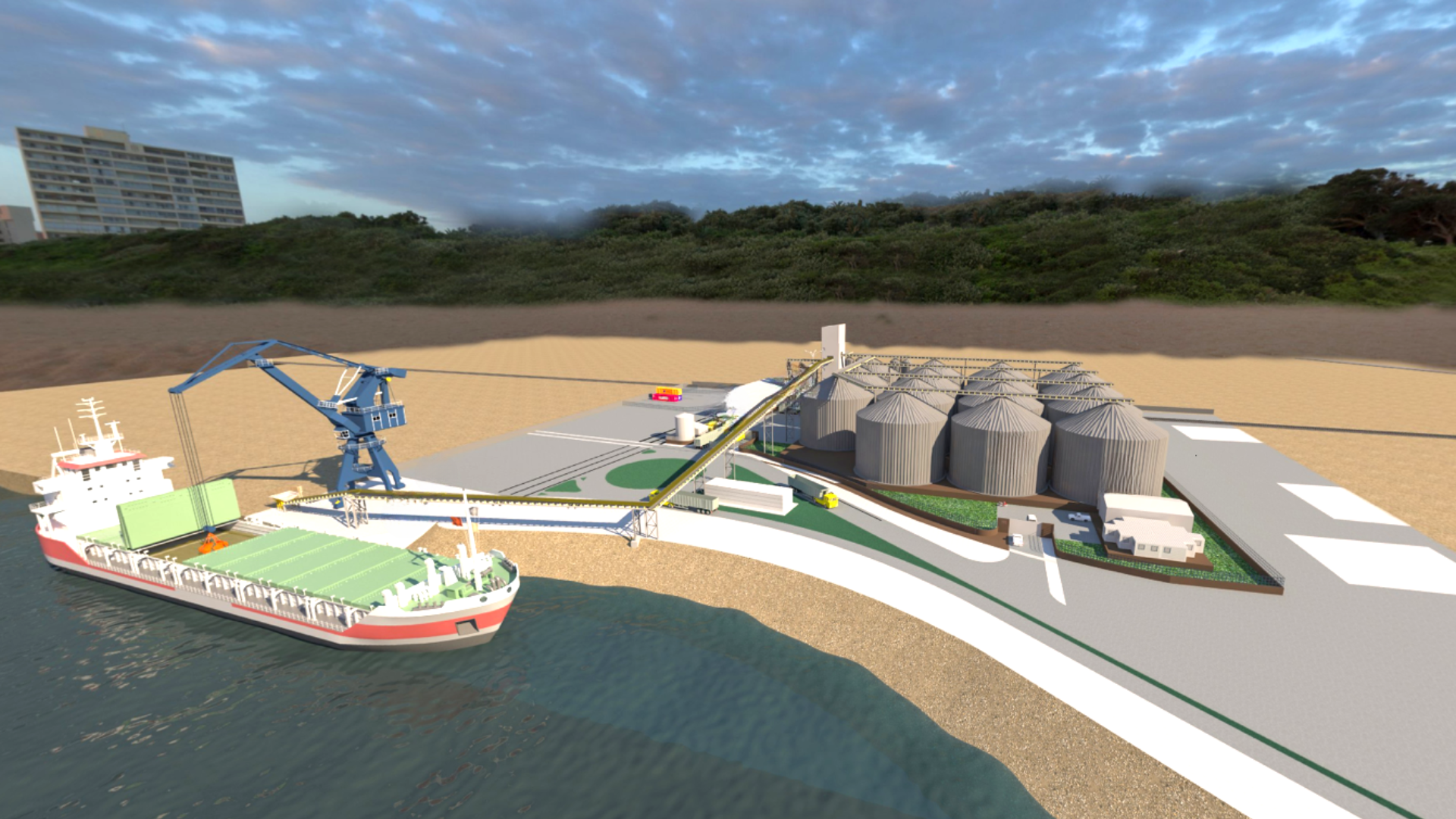The bustling shores of Nacala Port in Mozambique are witnessing a transformative addition to their infrastructure: a dedicated bulk terminal designed exclusively for handling grains. This development heralds a new era of efficiency and sophistication in agricultural trade, promising to elevate Mozambique’s status as a key player in the global grain market. Let’s take a closer look at the cutting-edge features of this terminal and how they’re set to revolutionise grain trade in the region.
High-Speed Operations:
At the heart of the terminal’s efficiency lies its impressive crane, boasting a loading and unloading capacity of 300 metric tons per hour. This powerhouse of a machine ensures swift handling of grain shipments, minimizing turnaround times and maximizing throughput, this crane will be the backbone of the terminal’s operations.
Seamless Transfer:
Upon unloading, the grains are efficiently transferred into a hopper. From the hopper, the grains are seamlessly transported along conveyor belts into silos. This seamless transfer process minimizes spillage and ensures that every grain is accounted for.

Direct Loading:
One of the standout features of the terminal is its capability to load grains directly onto trucks or trains. This eliminates the need for intermediate handling steps, reducing the risk of damage or contamination and further expediting the transportation process. Trucks and trains can be loaded swiftly and efficiently, ensuring that grains reach their destinations in optimal condition.
Optimised Storage:
Storage capacity is a critical component of any grain terminal, and the Nacala terminal does not disappoint. With an initial capacity of 40,000 metric tons, divided into eight silos each capable of holding 5,000 metric tons, the terminal offers ample space to accommodate varying volumes of grain. This optimised storage layout facilitates efficient inventory management and ensures that grains can be stored safely and securely until they’re ready for shipment.
A Sustainable Approach:
In addition to its operational efficiency, the terminal prioritizes sustainability at every step of the process. From energy-efficient equipment to eco-friendly waste management practices, every effort is made to minimize the terminal’s environmental footprint. By embracing sustainability, the terminal not only contributes to environmental conservation but also future-proofs its operations against evolving regulatory standards.
The dedicated terminal for grains at Nacala port represents a significant leap forward in the realm of agricultural trade. With its state-of-the-art equipment, streamlined operations, and commitment to sustainability, the terminal is poised to redefine grain trade dynamics in Mozambique and beyond. As it becomes fully operational, the terminal promises to unlock new opportunities for agricultural producers, traders, and consumers alike, ushering in a brighter and more prosperous future for the region.
